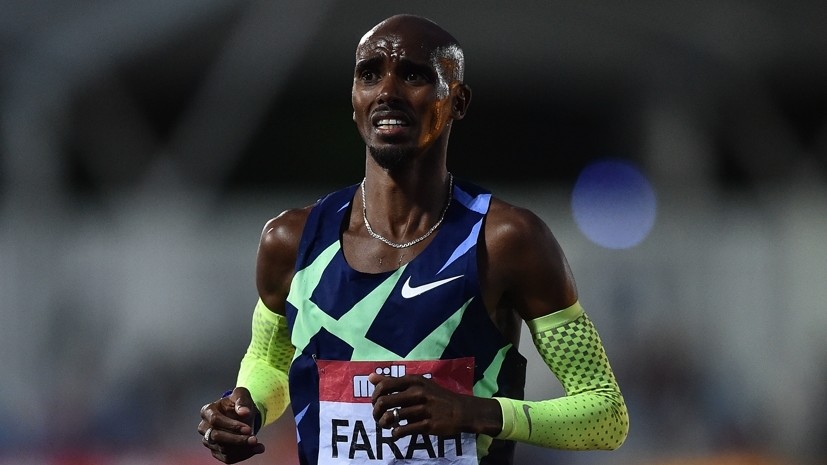Mohamed Farah is considered one of the greatest athletes in the history of the United Kingdom.
He has repeatedly won the world and European championships in long-distance running, and in 2016 he became the first British athlete in history to win four Olympic gold medals.
Thanks to his achievements, he not only became one of the most popular representatives of his sport, but was also first ordained a Commander of the Order of the British Empire, and then received the title of a knight bachelor and the right to prefix "sir" to his name.
However, the legendary marathon runner admitted that he actually lied about his past for a long time.
In the BBC documentary, which will air in full on July 13, he revealed that he entered the country illegally at the age of nine and still goes by a false name.
“Most people know me as Mo Farah, but that's not my name, it's not like that at all.
I was actually born in Somaliland, northern Somalia, and my birth name was Hussein Abdi Kahin.
Despite what I have said in the past, my parents never lived in the UK," stayer said.
Over the years, Farah has repeatedly spoken out about his childhood, but adhered to a different version.
Until that moment, he did not say anything about his real name, and also assured that at the age of eight, together with his two younger brothers, he went to London, where his father was already at that time.
However, it turned out that this was not the case.
“When I was four years old, my father died during the civil war, and our family was divided.
I was separated from my mother and illegally brought to the UK, giving me the name of another child, Mohamed Farah, ”said the athlete.
According to the athlete, at the time of his departure to London, he was nine years old.
The future champion lived with his uncle's family in Djibouti, when a certain woman, whose name he does not name, began to visit their house.
According to him, she offered to transport him to Europe, where he would live with relatives.
But she noted that for this he would need to use fake documents in the name of Mohamed Farah.
As the athlete said, everything changed dramatically upon arrival in the capital of Great Britain.
He had the address of relatives in his hands, but as soon as they arrived at the woman's house, she took the paper from him, tore it up and threw it into the trash can.
At that moment, he realized that he had problems, the athlete admitted.
Farah had no choice but to live in a woman's house, where he was treated far from the best.
According to the athlete, he was forced to look after her children and feed them, do laundry and cleaning - all this in order to be able to eat.
“I had no idea that so many people go through all that I have experienced.
This shows how lucky I am.
What really saved me, what distinguished me from the rest, is my ability to run, ”said the four-time Olympic champion.
As Farah notes, it was his prospects in the sport that helped him leave his home in Hounslow.
His physical education coach, Alan Watkinson, was the first to see his great talent and find out in what conditions the runner lives.
At first, he helped to place him in another family, and in 2000 he helped him obtain British citizenship.
What prompted the athlete to talk about the events that took place many years ago?
According to him, the reason was the desire to openly communicate with their children.
As Fara admitted, for many years he wanted to tell them the truth, but could not afford it.
True, there is a risk that frankness can cost him dearly.
In the event that the fact of fraud is proven in court, the stayer may lose citizenship.
Although lawyer Alan Briddock believes that this is highly unlikely in the case of Mohamed.
“
Basically, human trafficking, by definition, refers to the transportation of people for the purpose of exploitation.
In your case, you, being a small child yourself, were forced to look after other children and be a domestic servant.
And then you reported to the appropriate authorities that "your name is different."
The combination of all these factors reduces the risk that the Ministry of the Interior can revoke your citizenship, ”Briddock assured, and this was later confirmed by the department itself.

